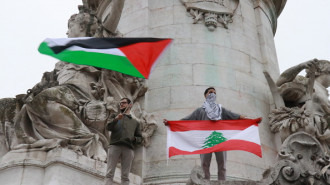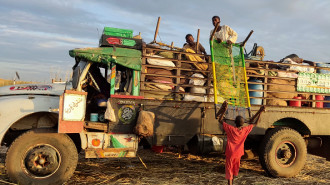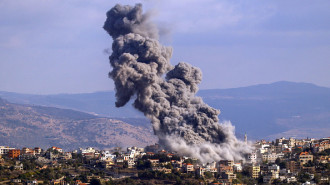Death penalty urged in Kuwait mosque bombing case
Death penalty urged in Kuwait mosque bombing case
The trial of 29 suspects charged with involvement in the suicide attack that targeted a Shia mosque in Kuwait City, begins Tuesday, as lawmakers call for capital punishment.
2 min read
Kuwait has adopted new measures to try to prevent another attack [AFP]
The trial of 29 suspects charged with the suicide bombing at a Shia mosque in Kuwait, that killed and wounded scores of worshippers, began on Tuesday.
The attack in June targeted the Shia Imam al-Sadeq mosque in Kuwait City, killing 26 people and wounding over 200 others. It was claimed by a group affiliated with the Islamic State group (IS), calling itself Najd Province.
Kuwait’s public prosecution last month referred 29 people, including seven women, to the criminal court on charges of attacking the mosque. Five of the 29 defendants will be tried in absentia.
Tight security
Tuesday's hearing was held under tight security, with everyone checked before being allowed into the courtroom.
The main suspect, Abdulrahman Sabah Saud, confessed in court to being part of the Islamic State (IS), saying that he had joined the extremist group just a day before the attack.
Although the public prosecution has not released the official charge sheets, a number of defendants are charged with being in a proscribed group and taking part in the bombing.
Most are also accused of assisting those behind the attack.
Saud, who drove Saudi bomber Fahad al-Qaba'a to the mosque in Kuwait City, was arrested two days after the blast in a hideout owned by two other suspects.
Saud also confessed to transporting an icebox containing the explosives belt used in the attack from near the border with Saudi Arabia.
The icebox was delivered by two Saudi brothers who are now in custody in Saudi Arabia along with a third brother who was arrested in Kuwait.
The seven women present, wearing black abayas and face covers, were allowed to sit with female police guarding them while the male defendants were placed in a metal cage.
Death penalty
Kuwaiti lawmakers called for the capital punishment for the defendants, Gulf News reported.
“I call for the most severe punishment against anyone who attempts to undermine the security of the nation and frighten innocent people,” MP Sultan Al Lughaisim said Tuesday.
“The perpetrators of the attack must be executed for killing innocent people who were praying inside a mosque during the holy month of Ramadan,” he added, quoted by Kuwaiti daily Al Rai.
The next hearing in the case was set for Thursday.
Since the attack, Kuwait has been working to ward off sectarian tensions, adopting measures to prevent any further attacks by the group. In mid-July, it set up a permanent committee to help fight "terrorism" and "extremism".
The attack in June targeted the Shia Imam al-Sadeq mosque in Kuwait City, killing 26 people and wounding over 200 others. It was claimed by a group affiliated with the Islamic State group (IS), calling itself Najd Province.
Kuwait’s public prosecution last month referred 29 people, including seven women, to the criminal court on charges of attacking the mosque. Five of the 29 defendants will be tried in absentia.
Tight security
Tuesday's hearing was held under tight security, with everyone checked before being allowed into the courtroom.
The main suspect, Abdulrahman Sabah Saud, confessed in court to being part of the Islamic State (IS), saying that he had joined the extremist group just a day before the attack.
Although the public prosecution has not released the official charge sheets, a number of defendants are charged with being in a proscribed group and taking part in the bombing.
Most are also accused of assisting those behind the attack.
Saud, who drove Saudi bomber Fahad al-Qaba'a to the mosque in Kuwait City, was arrested two days after the blast in a hideout owned by two other suspects.
Saud also confessed to transporting an icebox containing the explosives belt used in the attack from near the border with Saudi Arabia.
The icebox was delivered by two Saudi brothers who are now in custody in Saudi Arabia along with a third brother who was arrested in Kuwait.
The seven women present, wearing black abayas and face covers, were allowed to sit with female police guarding them while the male defendants were placed in a metal cage.
Death penalty
Kuwaiti lawmakers called for the capital punishment for the defendants, Gulf News reported.
“I call for the most severe punishment against anyone who attempts to undermine the security of the nation and frighten innocent people,” MP Sultan Al Lughaisim said Tuesday.
“The perpetrators of the attack must be executed for killing innocent people who were praying inside a mosque during the holy month of Ramadan,” he added, quoted by Kuwaiti daily Al Rai.
The next hearing in the case was set for Thursday.
Since the attack, Kuwait has been working to ward off sectarian tensions, adopting measures to prevent any further attacks by the group. In mid-July, it set up a permanent committee to help fight "terrorism" and "extremism".
![Kuwait mosque security [AFP] Kuwait mosque security [AFP]](/sites/default/files/styles/large_16_9/public/media/images/9E5DD57E-2FC0-47DF-BAE5-FB49ECD71F05.jpg?h=d1cb525d&itok=-nH4x81N)
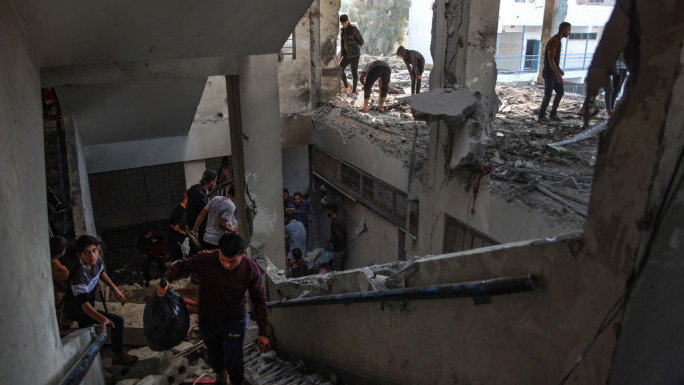
![President Pezeshkian has denounced Israel's attacks on Lebanon [Getty]](/sites/default/files/styles/image_684x385/public/2173482924.jpeg?h=a5f2f23a&itok=q3evVtko)

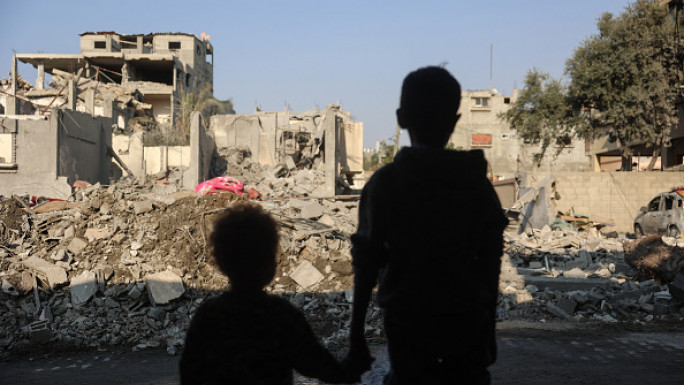
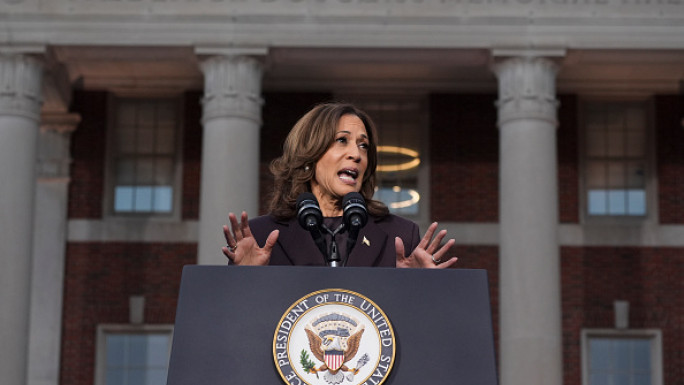
 Follow the Middle East's top stories in English at The New Arab on Google News
Follow the Middle East's top stories in English at The New Arab on Google News
